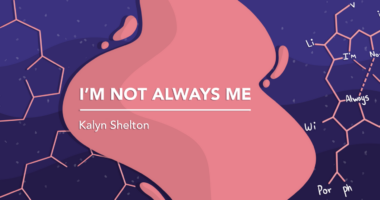How to Keep Friends Close When You Have a Rare Disease

My undiagnosed rare disease sabotaged friendships. For years, I kept my acute hepatic porphyria (AHP) hidden for fear of being viewed as weak or seeking pity. As a result, I showed up in the world as guarded and aloof, shy and uninterested — traits that do not align well with making friends.
In today’s combative and confusing times, we need deep, meaningful connection with like-minded people more than ever. Unfortunately, there’s a raging pandemic in the way, and as viruses can trigger AHP flare-ups, I can’t be too careful. If I’m not deliberate with my social engagements, it’s a recipe for loneliness.
Learning to open up
For years, I let my AHP get in the way of having close friendships. Although I came across as shy, I was really guarding my true self from others. Close relationships required honesty and trust, which felt far too risky.
Sure, I had been hurt in the past, but it was more than that. I harbored a deep, dark secret. I was in pain constantly, and my anxiety was out of control. I didn’t sleep, I didn’t reliably eat, and I couldn’t go to the bathroom most days. I felt a general sense of malaise nearly all the time, but was told by specialists that all was normal. I was scared. And underneath my carefree façade festered deep, growing resentment for my body.
When I bought my condo, I was 32 and working full time. Between my job and a networking life that hinged on evening board meetings and happy hour events, I needed space of my own to unwind on weekends.
I found a two-bedroom unit in an historic building, within walking distance to everything. I had the bathroom remodeled, the floors refinished, and I lovingly painted every room shades of tranquil blue and gray. When the dust settled and the paint dried, I looked around at the beautiful space I had created and waited to feel empowered and free. But all I felt was devastatingly lonely. Although I was around people constantly, my interactions were surface-level.
Within two months of purchasing my condo, I fell into such a severe AHP attack that I could scarcely walk myself to the bathroom. I managed to drive to the emergency room, but once admitted, I was terrified and confused. I was undiagnosed, and doctors were perplexed by my symptoms. I knew I needed to tell someone.
After firing off a few texts, I soon realized that when I asked for help, people answered. The friends who gathered around my hospital bed didn’t care that my illness had no name; they wanted to show me that they were in my corner. They didn’t expect me to be strong or stoic for them. They didn’t shame me for my pain. In regards to my friendships, the bulk of my mental agony was self-inflicted.
It was through being at my lowest, most vulnerable point that my heart softened. I learned that when I was open and real, I could form next-level connections with others.
Applying my lessons learned
After discharge, I was incredibly weak. I was faced with going home to an empty condo, a fridge of expired food, and uncertainty about my ability to do everyday tasks. I needed help, but would have to confront my nagging fear of rejection in order to ask for it. I found that requesting support for specific tasks allowed friends to show up in ways that were good for both of us, such as picking up groceries or taking out the trash.
When I am feeling like a burden or minimizing my needs during this pandemic, I can take what I learned during my recovery. Rather than sending an open-ended text about catching up at some unspecified, ambiguous future date, I will propose a specific time. It’s helpful for both of us if I lead with what I’m struggling with or what I may want to discuss, so that my friend understands why it’s an important conversation.
I also remind myself that my friends aren’t there to inflict judgment, and they don’t have to understand the ins and outs of AHP. I was recently in bed for five days with an attack. A few years ago, I may not have told anyone and suffered in silence. Now, my need for laughter and love trumps any remaining fear of being misunderstood.
When you live with a complex invisible illness, it can be easy to keep friendships surface-level, but that doesn’t change the fact that we all need meaningful social engagements for our mental health. AHP is isolating, and bad pain days get lonely enough without worrying about what others think. If you feel alone, I promise you, you aren’t.
***
Note: Porphyria News is strictly a news and information website about the disease. It does not provide medical advice, diagnosis, or treatment. This content is not intended to be a substitute for professional medical advice, diagnosis, or treatment. Always seek the advice of your physician or other qualified health provider with any questions you may have regarding a medical condition. Never disregard professional medical advice or delay in seeking it because of something you have read on this website. The opinions expressed in this column are not those of Porphyria News or its parent company, Bionews, and are intended to spark discussion about issues pertaining to porphyria.







Leave a comment
Fill in the required fields to post. Your email address will not be published.